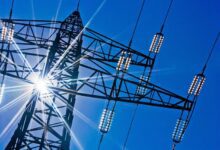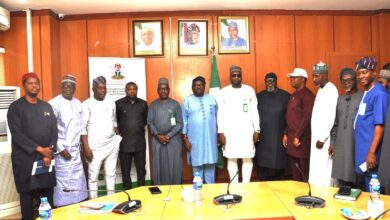Why Power Privatisation Failed In Nigeria -Dr. Sam Amadi

Former Chairman of the Nigerian Electricity Regulatory Commission (NERC), Dr. Sam Amadi has identified rigged processes and corruption as major factors that led to the failure of the power privatization in Nigeria.
Dr. Amadi made the assertion while presenting a paper, titled: A Review of 10years Privatisation: Failure or Success? At the Nigeria Electricity Supply Industry (NESI) Market Participants and Stakeholder Roundtable (NMPSR) on Wednesday in Abuja.
Amadi said, “after 10 years the verdict is that privatisation has not worked as proposed”.
He listed some of the reasons for poor results to include, “rigged processes and corruption. Weak institutions in engendering growth and economic performance. Faith in private sector to provide finance and change management is misplaced without effective regulation and aligned macroeconomy, and radical reform of the public sector”.
Dr. Amadi said, the country had a modeling problem, in thinking that merely privatising would solve the crisis.
“We failed to pay sufficient attention to the more important issue of restructuring, regulations, and competition as drivers of efficiency.
“We mistook the experiment in UK under Thatcher and forgot that UK had capacity before reform unlike Nigeria that does not have capacity.
“UK privatised to gain efficiency and reduce public sector spending on electricity. But we privatised even without electricity and hoped that private firms would grow capacity”, he added.
He also pointed out wrong diagnoses, Inefficient and corrupt project implementation, and Compromised ministers who are businessmen as some of the factors.
He said, “wrong diagnosis: the problem is not public ownership of electricity as such but lack of institutional efficiency and absence of regulation, therefore, the solution is restructuring and competition, not necessary privatisation.
“Inefficient and corruption project implementation, If former Presidents Olusegun Obasanjo and Goodluck Jonathan had awarded the Independent Power Project (NIPP) to competent firms, we would have added 10,000mw to the grid.
“This would have enabled the creation of a real electricity market. We lost that opportunity because of corruption and poor management.
“Compromised ministers who are businessmen failure to turnaround the sector is traced to ministers who want to sell assets to themselves or use their firms to do work that undermined strategic development of the market”, he said.
On strategic option to overcome reform failure, he said, there was the need to set up a presidential task force headed by the minister to achieve speedy results.
“We need to also unbundle distribution and bring back the smart state”, he said.






